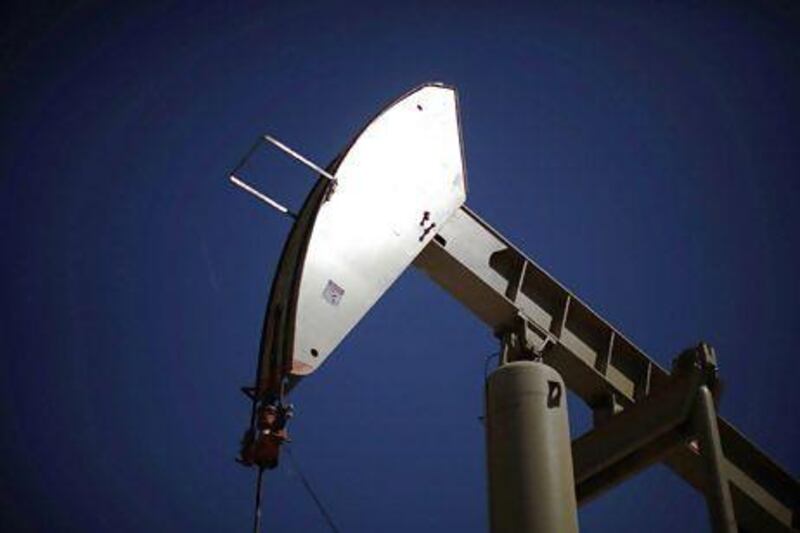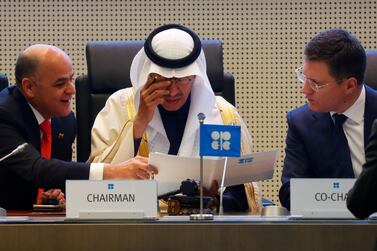Oil settled above $61 a barrel amid light volume as US President Donald Trump said a preliminary trade deal with China is “done” and ahead of government data expected to show another crude stockpile decline.
Futures rose 1 per cent in New York on Tuesday to close at a three-day high. Mr Trump suggested the US and China will sign a trade agreement ahead of his meeting with Chinese President Xi Jinping. American crude inventories fell by 1.5 million barrels last week, according to a Bloomberg survey before Energy Information Administration data on Friday.
With prices on the rise since October, the market is now in a completely different state from a year ago. Implied volatility, a measure of how much traders are willing to pay for protection against price swings, is less than half of what it was a year ago.
Oil is on course for the best month in nearly a year after the US and China made a breakthrough on an initial trade deal and Opec and its partners agreed to deepen output cuts. American crude inventories are coming off their highs even as the nation pumps near-record levels and shale explorers revive drilling.
“The speculative community is going to push as hard as they can to rally the market ahead of an expected storage draw on Friday,” said Robert Yawger, futures director at Mizuho Securities in New York.
West Texas Intermediate for February delivery settled 59 cents higher at $61.11 per barrel on the New York Mercantile Exchange. The contract is set for biggest quarterly gain since the first quarter.
Brent for February settlement gained 81 cents to $67.20 per barrel on the ICE Futures Europe Exchange, a three-month high. The global benchmark traded at a $6.09 premium to WTI.
Saudi Arabia and Kuwait also agreed to resume oil production in their shared “neutral zone” more than four years after halting output. Chevron expects full production at the Wafra field to be restored within 12 months, although that timetable will not likely to add significant amounts of oil to the market within the current duration of the Opec+ production deal, which runs until the end of March.







